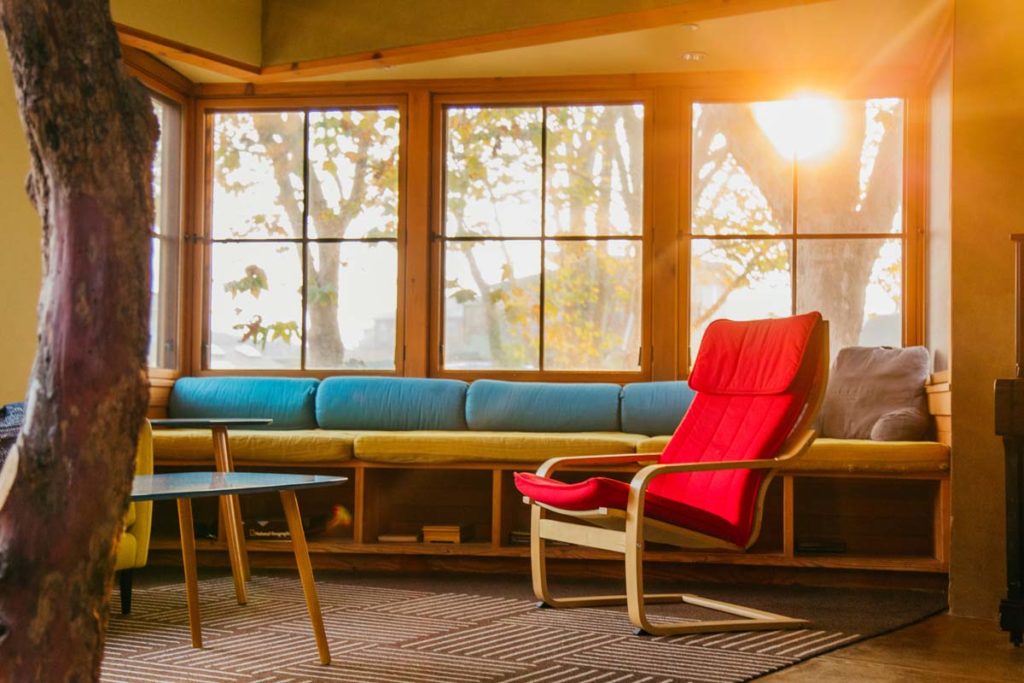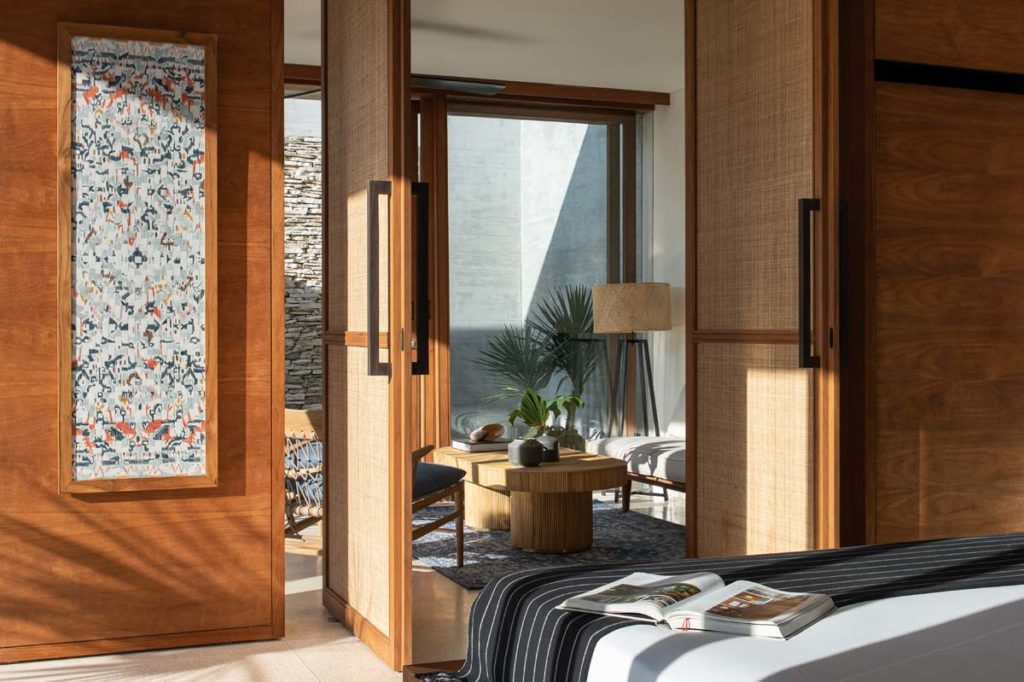Sincerely, BLLA
The Hospitality Industry’s Impressive Ambition and Creative Ingenuity
Part 6 in a series of 8 overviews In a normal year, travel trends constantly ebb and flow. Certain destinations will become popular, experiences...
Sincerely, BLLA
Part 6 in a series of 8 overviews In a normal year, travel trends constantly ebb and flow. Certain destinations will become popular, experiences...
In a normal year, travel trends constantly ebb and flow. Certain destinations will become popular, experiences will pique interest and new technology will influence the desires and habits of vacationers and backpackers alike. Some destinations remain popular, while others are influenced by movies or popular culture illuminating new spots. Elizabeth Gilbert’s 2006 “Eat, Pray, Love” made the New York Time’s Best Seller list for 137 weeks and suddenly thousands of people were flocking to Bali, claiming to have been inspired by Gilbert’s novel and new tours advertised the full “Eat, Pray, Love,” experience.
The hospitality industry works tirelessly to welcome guests, impress them with dazzling flavors, proudly display their cultures, while simultaneously inventing new experiences, building new cruises, and curating new concepts for clients to enjoy.
However, the past year has been anything BUT normal. Yet, what has remained consistent is this industry’s desire for excellence, impressive ambition, creative ingenuity, and stubbornness to not back down; not even in the face of a global pandemic, travel bans, labor shortages, or a shared uncertainty if things will ever be back to “normal”. Not even then, do those people who see the value of traveling to new worlds, eating great food, or experiencing life in abundance, stop working tirelessly to showcase these opportunities to the world.
The October 2021 BLLA Boutique Lifestyle Leadership Conference invited leaders in the travel trade to discuss a wide range of service topics. From inventive new projects, NFTs, sustainable practices, and wellness trends, individuals from all over the world participated in exhilarating conversations that succeeded in inspiring optimism and excitement in a realm of uncertainty. And, while the past few years have brought unprecedented challenges to a world of people who rely on in-person events and global travel, this (the) BLLA boutique community of brilliant and ambitious individuals proved that humanity’s instinct for curiosity; to explore, to work together, and to travel, is enough to sustain the hope of a fruitful future.

There is a general optimism regarding travel for 2022, with bookings reemerging and social media littered with #vacationgoals popping back up, the attitude regarding the future of travel is positive. And, the hospitality world is patiently waiting, ready for the flood gates to open. There has been time for new ideas to work out, as well as long-established projects to take time to reevaluate. Teams are rethinking their designs, reestablishing their values, and redesigning their strategies because the only guarantee for travel future; it will never remain the same, is that it will be constantly renewing and reinventing.
The Boutique Lifestyle Leaders Association is often at the forefront of change, the design of the boutique lifestyle naturally nourishing refreshing concepts; then mobilizing quickly and efficiently. And this year, unlike years before, emphasized the need to rethink travel practices and awaken a community that has been patiently waiting to present their new ideas.
In 2020, as the Covid 19 virus rapidly spread, offices, schools, public spaces, and entire countries closed their doors in an effort to keep people safe and healthy. The mandated quarantine forced employees to switch to remote style working and students to learn online. Turning guest bedrooms into offices or clearing enough room at the kitchen table to foster productivity was common practice. And eventually, people got used to this new routine. “The world of work is changing and it’s not going to be just a response to the pandemic, but probably a permanent thing,” added Regina Connell, Founder at Collective Work, in regards to the new working environment for employees that are now remote.
The conference session on The Work from Home Phenomenon: How Hotels are a Part of This invited speaker Emmanuel Guisset, Founder at Outsite, a community-based hospitality brand designed for remote workers and creatives with a global portfolio of 30 nomadic locations globally. This discussion addressed how co-working spaces are emerging as a result of the pandemic, and how the travel industry is quickly adapting to this new need. “The pandemic happened and suddenly everybody realized that it was possible, fun, and productive to work from a different place; from the beach, the mountain, the countryside or another city. It’s booming,” said Guisset.

Although his invention, Outsite, began in 2015, well before the global pandemic swept through the world, he was certainly ahead of a massive movement to work remotely anywhere and everywhere. Co-working and Co-living spaces have become wonderful tools for those working online, and awareness of these opportunities has boomed during the past few years. As more and more individuals redefine their work environment, people are looking for temporary spaces they can live while they work from their computers. Guisset mentioned the average stay in an Outsite property is anywhere from 1 week to 3 months. Outsite offers a membership-based service that provides clients with national and global homes, and communities, where they can become a part of a nomadic community as they travel around. Currently offering homes in Boulder, Colorado, San Diego, Honolulu, Costa Rica, and more, Outsite is looking to expand its portfolio to offer guests even more options for landing spots.
Wellness travel and community-based spaces are also trending topics in the trade, likely as a result of the pandemic. As individuals were forced to stay inside, and socialization became almost obsolete, travelers are looking to emerge from their private spaces and embrace communal designs.
Cap Karoso, a new hotel build in Indonesia, was designed by Evguenia Ivara with the value of sharing in mind. “All the spaces that we built, were built to create a dialogue between our guests and Sumba’s community,” Ivara said, “it’s all made in a way [referring to the design of dining experience] that you talk to your neighbor to share your feelings, emotions and to share your experiences around the island.” A new luxury has emerged in the past few years: that of community and coexistence. It seems that we are all craving the privilege of social life, and the hotel industry is more than happy to provide innovative space to do just that.
With all the exciting projects and concepts coming from the involuntary break from travel, it would be an inaccurate omission to not recognize the unfavorable consequences faced by hoteliers and restaurant owners as a result of the mandated quarantine. However, as a result of these unfortunate circumstances, conversations around labor shortages lead to discussing fair wages, staff wellness, and positive work environments.

In the struggle to find some normalcy during the pandemic, staff from all areas of expertise returned to work and found themselves overworked and facing dangerous circumstances. The hospitality and travel industry took a hard hit, “During the pandemic […] occupancy rates dropped down to 44%, and that’s high in some areas,” commented Guy Maisnik, Partner & Vice-Chair of Global Hospitality Group® at Jeffer Mangels Butler & Mitchell LLP in a conversation titled, An Inside Look: The Boutique Hotel Labor Crisis. Maisnik considered this time in the travel and hospitality space a “great reassessment”, with the industry down by 2 million, he also mentioned a Forbes study where out of 13,000 interviewed workers, 50% said they wouldn’t be returning to their previous job in the industry.
Immediately addressing the labor shortages, Travis Passerotti is trying to shift away from the “Skeleton staff,” he refers to the low numbers of workers restaurants and hospitality teams are managing and want to see more benefits, resources, and time off for his staff and himself. As he spoke on the unfavorable conditions expected of restaurants workers; “the 60-hour workweek, low pay, the constant availability,” he refers to this as an “old world restaurant mentality,” that he hopes to “make personal steps to work away from.” By advocating for his team and not accepting offers that do not meet his bare-minimum expectations, Passerotti made a powerful statement on the way the industry is treating its workers. “As the saying goes; part of making the change is being the change,” added Passerotti.
In the same conversation, Daniel Patterson, the chef, and founder of Coi restaurant added, “taking care of employees used to be the cherry on top of the cake, but now it is the whole cake,” (we love a good food metaphor from the chefs and also because the cherry is the official StayBoutique icon), “there is no conversation that happens without that being foundational.” Amongst the fear and uncertainty faced by the hospitality, and especially the food service industry, there is a massive push to change the working conditions for employees.
During his talk with Guy Maisnik, Jim McPartlin, Chief People Officer at Highgate, stated, “We have to offer competitive pay and we have to offer benefits. It has to be compelling to go and do this.” In this powerful statement alone, one can see the impact the labor shortage caused by the pandemic has on the expectations workers have of management and the working conditions. Without proper staff, hotels and restaurants simply cannot survive, much less succeed, and with people hesitant to return to positions within the hospitality industry, the workers have gained an upper hand in their negotiations of employment circumstances. With higher pay, better benefits, more flexibility, and remote work motivating people to seek other opportunities, Maisnik added, “what happened in 2020 and what we’re seeing in 2021 is an entire generation of changes that have been crammed into 1-2 years.” And, this statement truly addresses the immensity of how the travel industry is drastically remodeling all areas of the familiar at an unprecedented rate, for travelers and internally, for the working environments of their staff as well.
Shaping Unique Experiences and Future Trends in Hospitality In an evolving travel landscape, boutique hotels have emerged as significant players, r...
We are thrilled to unveil the theme for the 2024 Boutique Hotel Owners Conference by BLLA: "The Mycelium Network." This year, we dived into the profo...